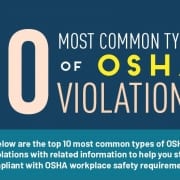Happiness at Work: Fact Not Fad
I’ll never forget one of my first business meetings. Super keen but very green, I sat down with my new boss and other team members on my first six-month placement at a large financial institution. I was one of 20 graduate trainees and one of only three women to be taken on.
Understanding about 10% of what was actually being said – it sounded like English but made little sense – I was asked a question. What did I think? Did I, the new graduate trainee, have an opinion? My stomach lurched. I was being tested and needed to say something useful.
My reply started with ‘Well, I feel…’ But my boss cut in. ‘We’re paying you to think, not to feel.’ I was crushed. Welcome to the world of work as it was in the 80s, my first taste of a very macho industry. It was a long time before I had the courage to use the word ‘feel’ again in any work place.
Hi there! This article is available for free. Login or register as a StrategyDriven Personal Business Advisor Self-Guided Client by:
Subscribing to the Self Guided Program - It's Free!
About the Author

, published by Wiley Blackwell. She lives in Oxford. For more information, visit www.iopener.com.










I like your article a lot! :-)…